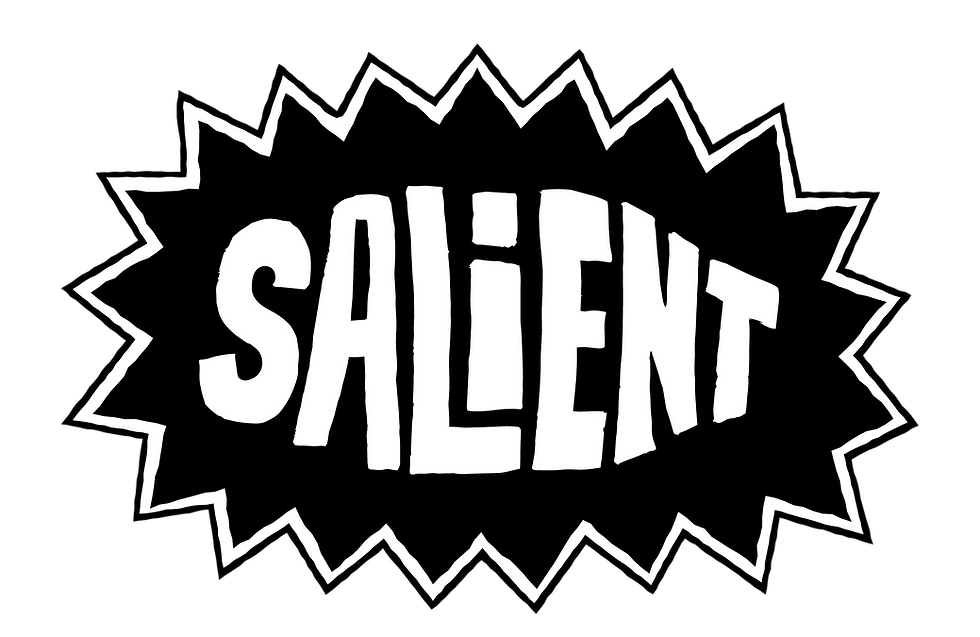Nowhere Girl
- Salient Magazine

- Aug 5, 2024
- 4 min read
Words by Jia Sharma (she/her)
When people meet me for the first time, the most common thing they’ll acknowledge is my accent. I never thought it was unusual, but I've been told I sound British, American, and Canadian—sometimes all at once.
I was born in Henderson, Auckland to Fiji Indian immigrant parents. When I was ten, we moved to Fiji for three years before we came back to New Zealand when I started high school. I loved living in Fiji. Many of my family members still live there, so growing up, we often travelled back. But living in Fiji was a completely different experience from visiting it as a child. I attended an international school, surrounded by children of expats from all over the world. Going to an international school in my formative years is usually the explanation I give for my weird accent. The international school accent is easily recognisable in the ‘international kid’ community.
Moving back to New Zealand could only be described as a culture shock, despite living here for the majority of my life. I wasn’t able to seamlessly slip back into being the ‘kiwi kid’ I was when I was ten years old. After being gone for three years I was disconnected from the culture, and sometimes it didn't seem right to claim my New Zealand nationality.
The rest of the country seemed to feel the same way. Last year I was in a store and the cashier asked me if I was Indian. I said yes. He then proceeded to speak to me in Hindi and I hesitantly replied back. To this he said, “Oh, you must be third gen”. This was a white man. At work, I get asked where I’m from at least once a shift by a customer. They’ve told me that the way I speak and sound doesn’t match the way I look and will try to guess my background, almost as if I’m some sort of puzzle they’re trying to solve.
There’s always that awkward moment of hesitation when people ask where I’m from. When I was in Fiji I always said I was from New Zealand. When I’m in New Zealand, I say I’m from Fiji. Then comes the inevitable, “But where are you from, from?”. I don’t even know. I’m wondering the same thing as you are.
I know they’re waiting for me to say India. I can’t blame them. I look Indian; ethnically, I am Indian. But simply saying that I am Indian doesn’t feel right. My family was transported from India to Fiji in the early 1900s to be Girmitiyas. ‘Girmitiyas’ was the name given to indentured labourers who left India to serve in the British colonies, where they eventually settled. Five generations of my family have been in Fiji since then.
The Fijian and Indian cultures have mixed so much that it’s only fair to consider them something completely unique. Even Hindi spoken in India and Fiji is different. A lot of people have told me that I’m just Kiwi Indian. Because I’m not ethnically Fijian, I have to be Indian. But it feels wrong to discredit the Fijian-Indian culture that I grew up and lived with by simply referring to myself as Indian. I have so many more ties to Fiji than I do to India, and I refuse to disregard those roots.
This will never be enough for people. I’m not Fijian enough. I’m not Indian enough. I’m not Kiwi enough. So what am I? I’ve gotten used to going ‘select option: other’ my whole life when asked what continent I’m from because it doesn’t feel right to say I’m from Asia or the Pacific. I can get the gist of a conversation in Hindi just by listening, but I will probably never be able to fluently speak my own language. I won’t be able to feel my Fiji roots until I plant my feet in its soft, white sand. I was raised in Henderson, Auckland. It’s the longest I’ve ever lived in one place, but I’ve forgotten what it feels like to live there. Unlike my parents, my sense of self doesn’t come from my heritage from ‘the old country’. I’ve been told that I’m lucky because I can just claim to be a citizen of the world. No thanks.
Many second-generation immigrants can relate to this experience—the guilt, the pressure, the intergenerational trauma. It’s hard to feel connected to both the country that we live in and the ones our parents gave up so much to leave. It’s hard to complain when your parents leave their home to give you a good life, and I feel guilty for ever wanting to leave New Zealand. So instead, we’re just stuck between two worlds, or three worlds in my case. You have to honour your family history and culture while also embracing the new environment you live in. It feels like a constant state of limbo, bouncing between multiple sides of yourself. Don’t get me wrong, I love having a diverse cultural tapestry. I’ve been exposed to so much more than I would be if I had one home base. But that doesn’t replace the ongoing desire for a sense of belonging.
In my long life of eighteen years, I haven’t found a consistent answer to this recurring question. So, maybe in three years when I move away I can add another country to the list of places I can’t claim. Another place that’s home, but not home enough. I can’t stop you from asking where I’m from, but be prepared to wait the three to five working days it will take me to answer.


Comments